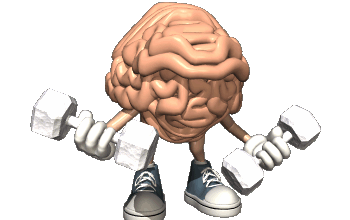It’s the old story — if you think you can, you will. A study out of Brandies University reports that if an older adult believes they can retain a good memory, even into their “twilight” years, it marks the first step in achieving that goal.
A positive attitude, and belief that memory can be controlled, will keep memory fit despite what the calendar says it should be, according to the study published in the Journals of Gerontology: Psychological Sciences. Researchers have been able to see a link between a low sense of control and cognitive functions, and examine the relationship between control beliefs and memory performance.
“One’s sense of control is both a precursor and a consequence of age-related losses in memory,” says lead author Margie Lachman, professor of psychology and director of the Lifespan Lab at Brandies University. “Our study shows that the more you believe there are things you can do to remember information, the more likely you will be to use effort and adaptive strategies and to allocate resources effectively, and the less you will worry about forgetting.”
The National Institute on Aging funded the study, which involved 335 adults between the ages of 21 to 83. They were asked to recall a list of 30 words in categories, such as types of fruit and flowers. Middle-aged and older adults who believed they had greater control over their cognitive functions did better on the tests, according to Lachman’s notes.
“It’s no surprise that age-related losses or lapses in memory can challenge our deeply embedded sense of control,” says Lachman. “Thus, we find an increase with age in beliefs that memory declines are an inevitable, irreversible, and uncontrollable part of the aging process. These beliefs are detrimental because they are associated with distress, anxiety, and giving up without expending the effort or strategies needed to support memory.”
Young and middle-aged people have a problem with memory at times. Most chalk it up to too much on their minds, not listening well, or external factors. As people age they tend to be more concerned that their memory slips are just the beginning of mental decline as they age. They start thinking about Alzheimer’s and dementia, which leads to anxiety, despair and depression.
On the other hand, those who have accepted the fact that over time every part of their bodies will show signs of age have taken steps in order to fight the ravages of time. They change their diet and exercise routine, they become more social, and they start doing memory exercises that improve their cognitive performance.
The results of the study suggests that interventions targeting conceptions of control over memory could be effective for enhancing memory in middle and later adulthood. It also demonstrates that having a positive attitude, and taking steps to ensure they have done all they can to combat memory problems as they age and increase the synapse between brain cells will ensure longer brain health.
—
About the author:
Ron White is a two-time USA Memory Champion. He speaks at seminars and to large groups all over the world on how to improve memory and memory techniques. In addition, his website BrainAthlete.com sells CDs and programs to improve memory skills and advise for success.
Sources:
EurekAlert! Confidence in memory performance helps older adults remember: http://www.eurekalert.org/pub_releases/2006-03/bu-cim030706.php



